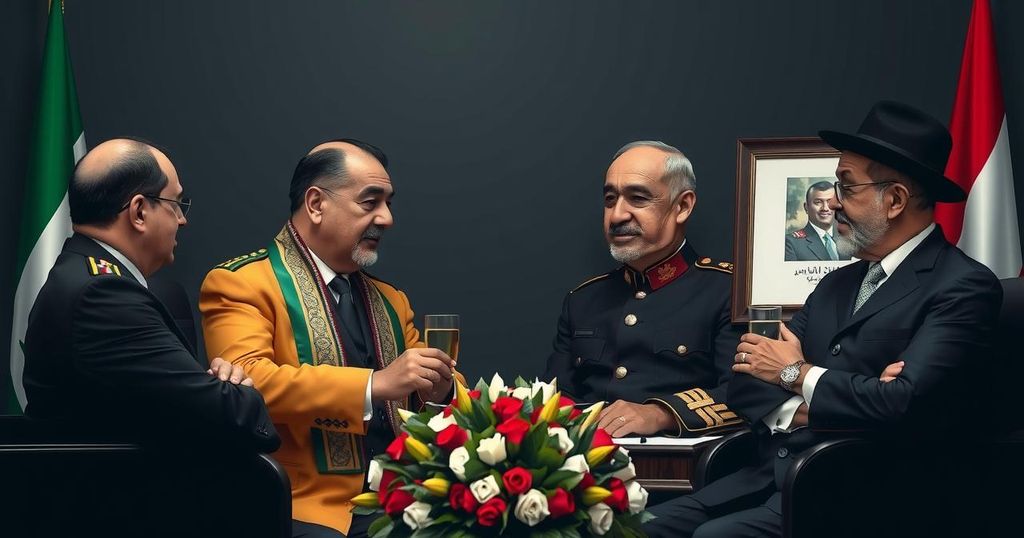Recent responses from Saudi Arabia, the UAE, and Egypt reveal a strategic shift in their relations with Israel, moving from overt condemnation of Israeli actions against Iran to a more tempered stance that emphasizes regional stability and shared interests in countering Iranian influence.
In recent developments within Middle Eastern geopolitics, Saudi Arabia, the United Arab Emirates (UAE), and Egypt have exhibited a noteworthy shift in their responses toward Israel’s military actions against Iran. Rather than aligning with the traditional practice of openly condemning Israel, the statements from these Arab nations reflect a more tempered and neutral tone. Their emphasis on sovereignty and the importance of regional stability suggests a potential realignment of priorities, particularly concerning the threat posed by Iran. The UAE, while condemning the military targeting of Iranian facilities, underscored the need for dialogue and adherence to international law, indicating a preference for diplomatic engagement over confrontation. This stance aligns with the UAE’s broader strategy of enhancing ties with Israel through economic and security cooperation, especially under the framework of the Abraham Accords. Similarly, Saudi Arabia’s characterization of Israel’s actions as a violation of sovereignty, coupled with its focus on regional security, hints at a significant change in rhetoric. Historically, Riyadh’s responses would have been more critical; however, the current approach signifies a calculated tolerance toward Israel’s security measures, particularly regarding Iran’s influence in the region. Egypt, too, has taken a more measured position, warning of broader regional confrontations while advocating for swift ceasefires across various fronts. This perspective reflects Egypt’s longstanding role as a mediator in Middle Eastern conflicts, with a vested interest in preserving stability along its borders. Collectively, these diplomatic responses reveal an emerging consensus among Saudi Arabia, the UAE, and Egypt concerning shared interests in countering Iranian influence and fostering regional stability. The subtle acknowledgment of Israel’s strategic position suggests a deliberate shift away from previous animosities, framing Israel not solely as a rival but as a potential collaborator in promoting stability in the region.
The dynamics of Middle Eastern politics have historically been characterized by deep-rooted rivalries, particularly between Arab nations and Israel, especially concerning issues surrounding Iran. In recent years, the geopolitical landscape has evolved, with Arab nations exploring new avenues of diplomacy, especially highlighted by agreements like the Abraham Accords. Although the Palestinian cause remains a critical element in regional politics, the prevailing focus on Iran’s influence has prompted these nations to reassess their long-standing positions toward Israel, aiming for a more pragmatic engagement that emphasizes collective security and economic cooperation.
In summary, the measured responses from Saudi Arabia, the UAE, and Egypt regarding Israel’s military actions against Iran signify a significant alteration in Middle Eastern allegiances. These nations appear to prioritize regional stability and security, which may necessitate a nuanced acceptance of Israel’s role as a counterbalance to Iranian ambitions. This shift could signal a new era of collaboration, eclipsing previous divisions and aligning their strategic interests more closely.
Original Source: www.jpost.com






